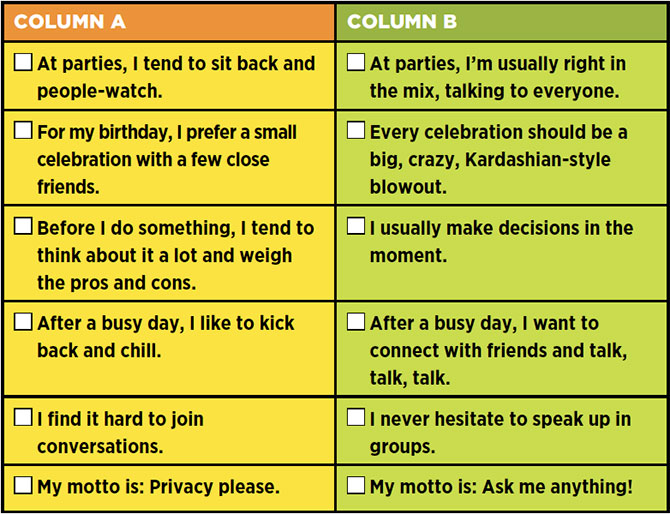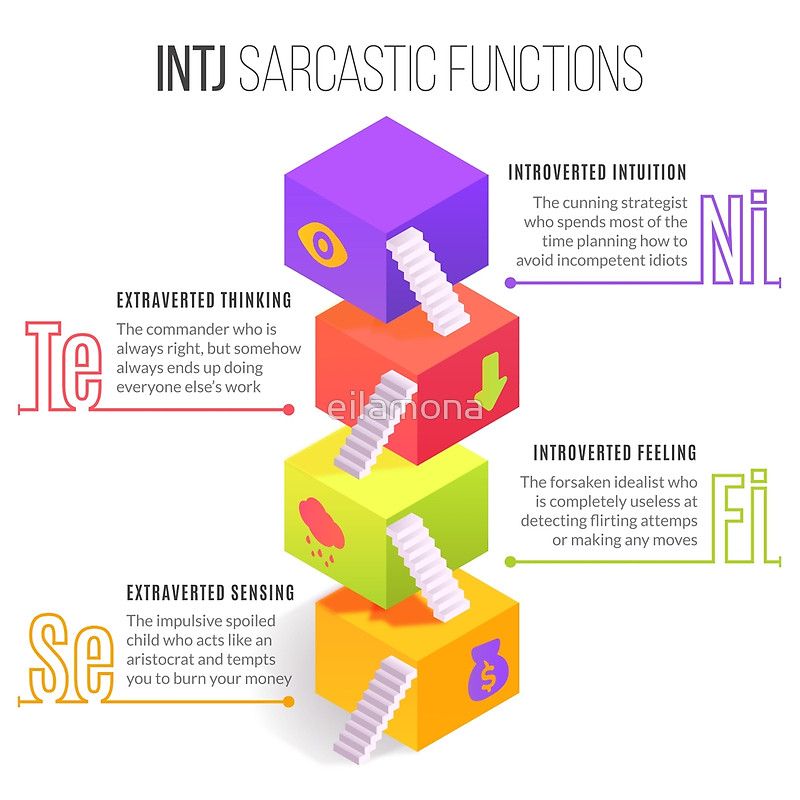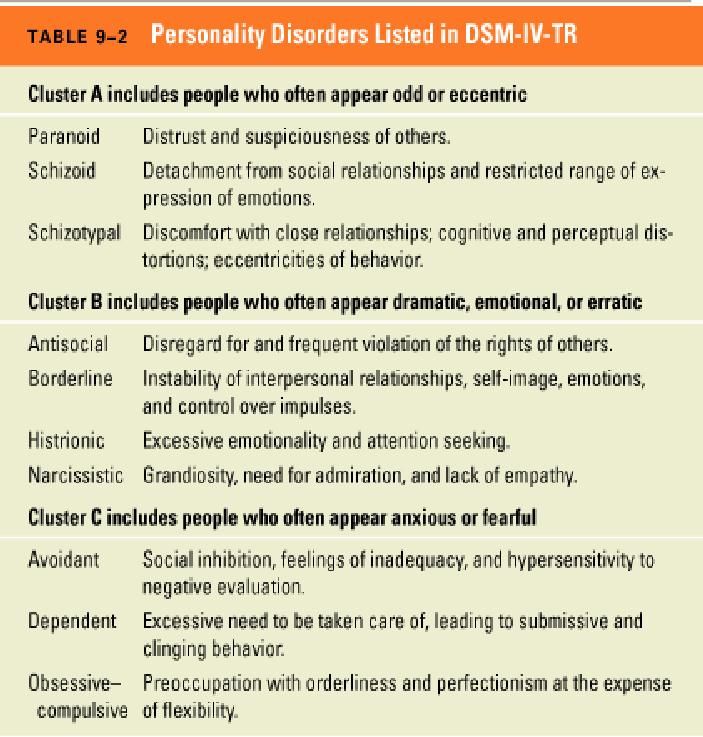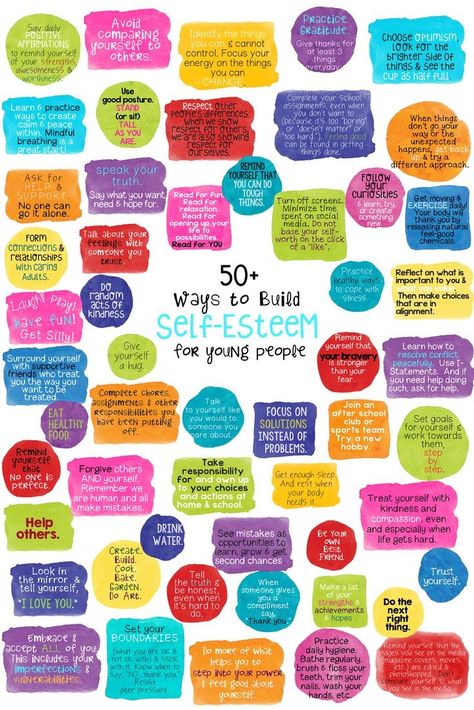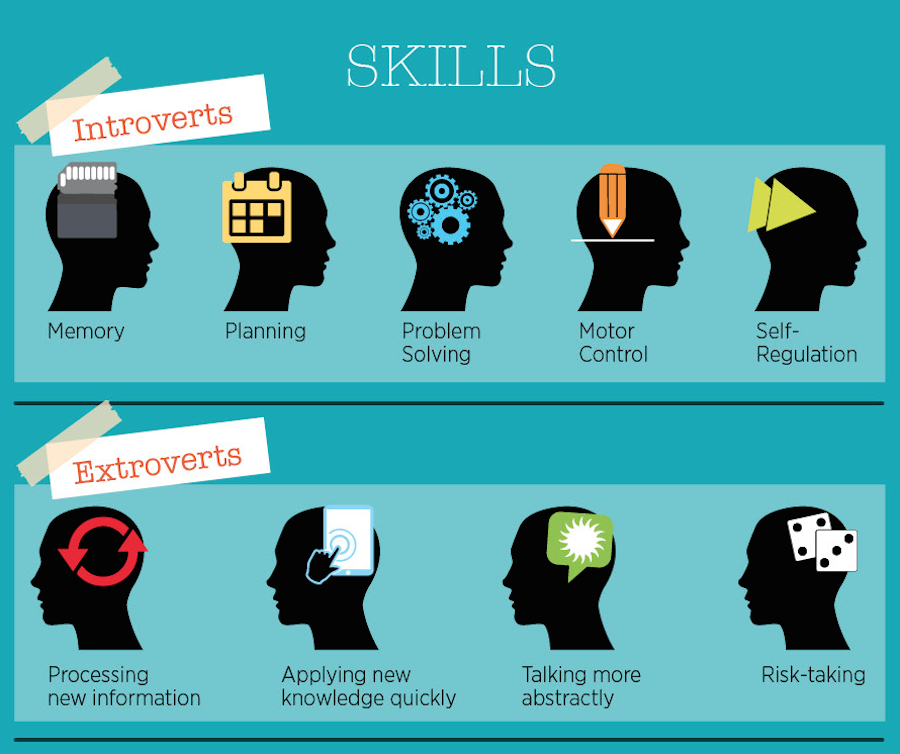How to befriend an introvert
How To Be Friends With An Introvert
“I have an introverted friend who seems to like spending time with me, but he’s pretty quiet. Sometimes I’m not sure whether I’m making him uncomfortable because I can be quite extroverted. How can I make our friendship work?”
Unlike extroverts, who are often portrayed as people magnets, introverts tend to be more quiet, shy, and reserved. This can make them harder to read, approach, and befriend. If you need help understanding and dealing with an introverted friend at work, in school, or in your existing friend group, this article can help. It includes tips and strategies for being friends with an introvert and will provide information to help you better understand people with this personality trait.
Being friends with an introvert
Making friends with an introvert may take a little more time and effort than it would with an extrovert, but in the end, it may be a richer relationship. Being in the small inner circle of an introvert’s world means you have earned a special place in their life. Below are some tips on making and keeping friends who are introverts.
1. Respect their personal space
Introverts really value their personal space and privacy, so it’s important to respect their boundaries. This means not showing up unannounced at their home and not bringing surprise guests along without letting them know in advance.
Advertisements
Introverts often need time both before and after social events to prepare and decompress. This means you should avoid making any pop-up visits or throwing a surprise party for them, as they may feel overwhelmed by these last-minute plans.
2. Don’t take their silence personally
Introverts spend a lot of time in their own inner world of thoughts and feelings and may be quiet in groups of people. This can lead them to be misunderstood by others, who may be offended by their silence.
Instead of asking, “why are you so quiet?” or assuming they are upset, try assuming your introverted friends are just naturally quiet. Being quiet is normal for them and doesn’t mean they aren’t listening or engaged.
Being quiet is normal for them and doesn’t mean they aren’t listening or engaged.
Advertisements
3. Invite them to hang out 1:1
Introverts tend to feel less overwhelmed when they interact with people 1:1 or in small groups.[1] Consider asking your introverted friend to hang out in a quiet setting where you can talk, like at an uncrowded cafe or at a local park. These low-key settings are often just their speed and also offer opportunities for deeper conversations.
4. Understand why they decline invitations
When an introverted person feels overwhelmed in a social situation, they may leave early, decline an invitation, or even back out of existing plans. While this can feel personal, it is more likely to be a sign that they are feeling nervous, overwhelmed, or just need some alone time to recharge.[1] Try not to take it personally when this happens, as they are probably just taking some needed personal space.
5. Encourage them to open up to you
Introverts can be quiet and reserved and often need someone a little more extroverted to draw them out by asking questions or initiating conversations with them.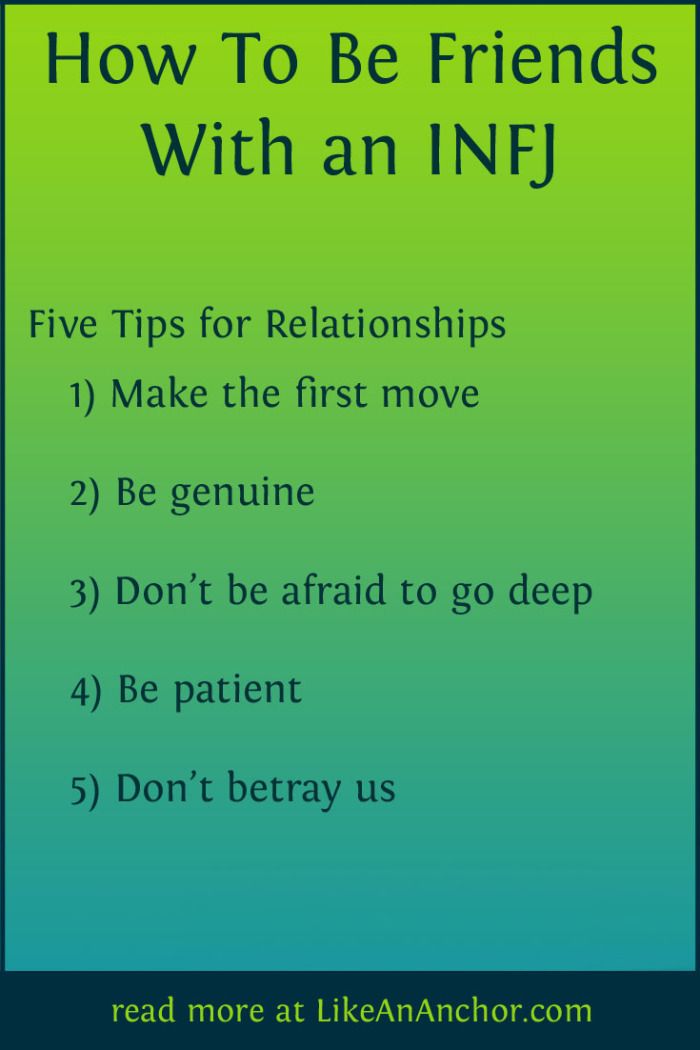 Because they may not speak up unless asked, opening the door to a conversation can help move your friendship forward. It’s usually best to start with more superficial topics and work up to deeper or more personal topics as trust develops.
Because they may not speak up unless asked, opening the door to a conversation can help move your friendship forward. It’s usually best to start with more superficial topics and work up to deeper or more personal topics as trust develops.
A recommendation
If you want to improve your social skills, self-confidence, and ability to bond, take our 1-minute quiz.
You get 100% free personalized tips based on your results.
Start the quiz
Some questions to get to know an introvert include:
- What do you like to do in your free time?
- Do you have a lot of family around here?
- What kinds of shows and movies do you like?
- Tell me more about what you do for work.
6. Spend quality time with them
Not taking time to make new friends is one of the top reasons adults make fewer friends than younger people.[3] Spending quality time together is important for developing and maintaining friendships.
Here are some ideas of how to spend quality time together:
- Have deeper conversations rather than sticking to the surface
- Share meaningful or memorable experiences together
- Show up when it matters or when they need your help
7.
 Help them expand their comfort zone
Help them expand their comfort zoneIt can be healthy for introverts to expand their comfort zone and learn to act in more extroverted ways. In research, extroversion has been linked to higher levels of social status and success, proving that this is a valued trait in our culture.[4]
Advertisements
Here are some ways to help an introvert expand their comfort zone:
- Invite them to try new things or go new places with you
- Ask them to help you co-host a small gathering
- Encourage them to participate more in social events or group conversations
- Introduce them to some of your other friends
8. Be ready to make compromises
If you are a person who is naturally more extroverted, it will be important for you and your introverted friend to find a balance in your relationship. This may mean making some compromises to find ways to spend time together doing the things you each enjoy. [1]
Some examples of ways to find this balance include:
- Taking turns choosing activities
- Both of you agreeing to try things the other likes
- Spending 1:1 time as well as time with groups of friends
9.
 Let them know what you need from them
Let them know what you need from themWhile you may need to make some changes to accommodate your introverted friend, it’s also important for them to meet you in the middle. If you are naturally more extroverted, you may need to be clear about your expectations in friendships with an introvert. Otherwise, you may not get your emotional needs met, and the relationship can become balanced and unhealthy.[1]
Advertisements
Some examples of things you may need to ask your introverted friend for include:
- Letting them know it’s really important to you that they show up for a specific social event, celebration, or party
- Asking them to make more of an effort to call and reach out to you, instead of you always being the one to call
- Asking them to make a speech or to play an active role in your wedding
What does it mean to be an introvert?
Introversion is a personality trait that develops in childhood and remains more or less fixed throughout a person’s life.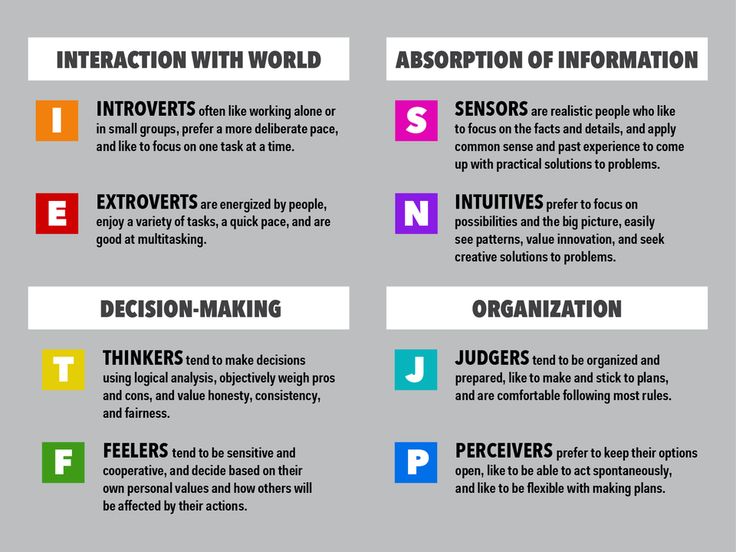 Most of us need close relationships to be happy, but introverted people tend to meet their social needs differently than extroverts,[1] with extroverts seeking out more social contact.[2] Extroverts feel energized when spending time with others, whereas introverts often find social situations draining.
Most of us need close relationships to be happy, but introverted people tend to meet their social needs differently than extroverts,[1] with extroverts seeking out more social contact.[2] Extroverts feel energized when spending time with others, whereas introverts often find social situations draining.
Some of the traits, habits, and qualities of an introvert include:[1]
- Disliking small talk or superficial interactions
- Becoming fatigued or drained by social activities and interactions
- Disliking a lot of stimulation
- Needing alone time to recharge after social occasions
- Preferring solo, low-key, or quiet activities away from noisy or very stimulating environments
- Liking to connect 1:1 with people or in small groups vs. large groups
- Often engaging in deep, reflective thinking and introspection
- Disliking being the center of attention, preferring to observe
- Prioritizing quality over quantity when it comes to friends
- Being slow to warm up or open up with new people or in groups
These introvert quotes may help you better understand your quiet friend.
It’s important to know that being introverted is not the same as having social anxiety. Social anxiety is not related to temperament and is instead a common, treatable mental health condition that some people overlook. People with this condition tend to have an extreme fear of social interactions, rejection, or public embarrassment and may go to great lengths to avoid interactions.
Advertisements
Final thoughts
Introverts sometimes get a bad reputation for being standoffish or antisocial, but this is often untrue.[5] In reality, introverts deeply value their friendships but also need quiet and alone time to recharge after being social. Being friends with an introvert can be difficult, especially for people who are naturally more outgoing, but it can still be deeply rewarding.
As long as both people are willing to work a little harder to relate and connect, introverts and extroverts can become great friends and can even help to keep each other balanced.
Advertisement
Consider online therapy
Online therapy allows you to speak to a licensed therapist in the comfort of your home.
BetterHelp offers support via phone or video at $64 per week.
Use the link below to get 20% off your first month at BetterHelp + a $50 coupon valid for any SocialSelf course. To receive your $50 SocialSelf coupon, sign up for BetterHelp using the link below. Email the order confirmation to SocialSelf to get your unique coupon code.
Click here to learn more
How can an introvert be a good friend?
Introverts tend to prefer deeper connections over superficial relationships, which sometimes results in a higher quality friendship. Introverts make great friends because they are careful in selecting their companions and highly value the people they choose to spend time with.[1]
Advertisements
Can an introvert be friends with an extrovert?
Opposites can attract, and introverts and extroverts can actually help to balance each other out.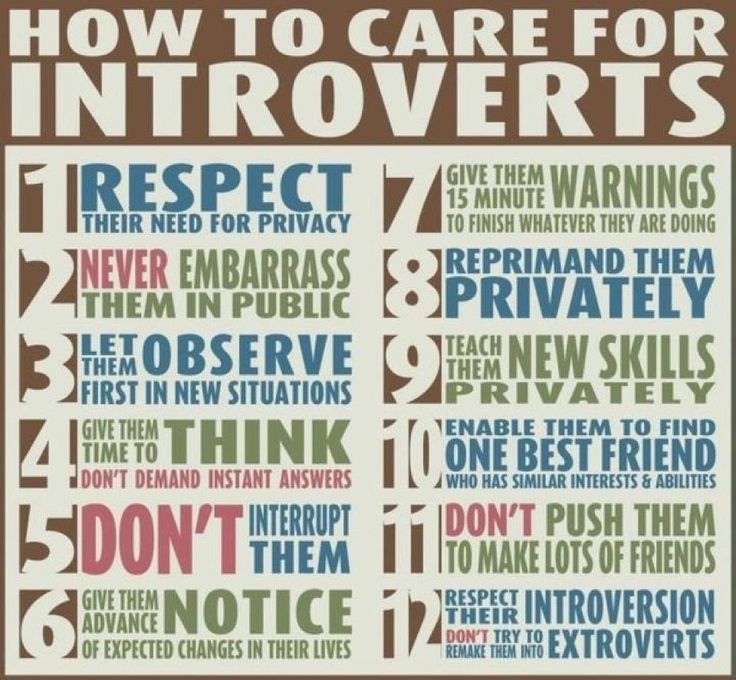 [1] Quiet friends can help an extrovert find ways to slow down and relax, and outgoing friends can challenge an introvert to expand their comfort zone.
[1] Quiet friends can help an extrovert find ways to slow down and relax, and outgoing friends can challenge an introvert to expand their comfort zone.
How do I get along with introverts?
Getting along with introverts is the same as getting along with anyone. Show them kindness, respect, and curiosity. It may just take a little more time and patience to get an introvert to warm up to you than it would take for someone more outgoing.
Article continues below.
Take this quiz and see how you can make new friends
Take this quiz and get a custom report based on your unique personality and goals. Learn how YOU can be better at connecting and turning people into close friends.
Start the quiz.
Why is it so hard for introverts to make friends?
Some introverts may prefer to be alone because it takes more energy and effort for them to be social, which can put them at a disadvantage when it comes to making friends. Because they often have solitary habits, they may even feel more content being alone.
Because they often have solitary habits, they may even feel more content being alone.
Can two introverts be friends?
Introverts can be great friends to each other as long as one or both people push themselves to reach out and connect in the beginning. If they can get through this initial phase, they often have an innate understanding of the other’s need for space, privacy, and alone time.[1]
Show references +
Advertisements
References
- Laney, M. O. (2002). The Introvert advantage: How quiet people can thrive in an extrovert world. United States: Workman Publishing Company.
- Hills, P., & Argyle, M. (2001). Happiness, introversion–extraversion and happy introverts. Personality and Individual Differences, 30(4), 595-608.
- Apostolou, M., & Keramari, D. (2020). What prevents people from making friends: A taxonomy of reasons. Personality and Individual Differences, 163, 110043.

- Anderson, C., John, O. P., Keltner, D., & Kring, A. M. (2001). Who attains social status? Effects of personality and physical attractiveness in social groups. Journal of personality and social psychology, 81(1), 116.
- Lawn, R. B., Slemp, G. R., & Vella-Brodrick, D. A. (2019). Quiet flourishing: The authenticity and well-being of trait introverts living in the west depends on extraversion-deficit beliefs. Journal of Happiness Studies, 20(7), 2055-2075.
Join our free training and learn these 5 secrets to making friends
- Learn to get past shallow small talk.
- Know where to find people who are more like you
- Improve socially without doing weird out-of-your-comfort-zone stunts.
- Learn why people who "don't try" often are so socially successful.
- See how you can go from boring to bonding in less than 7 minutes.
Start my free training
4 Counterintuitive Ways to Befriend an Introvert
The #1 way to befriend an introvert? Never call them.

While introverts might dart around in the shadows and seem shy, quiet, or even mysterious (let’s make this the new stereotype, shall we?), it turns out they’re actually perfectly normal. Yes, we have different ways of communicating and expressing ourselves than extroverts do — or we can say that extroverts have different ways of communicating and expressing themselves than we introverts do.
So how do the two worlds meet? How do extroverts “get” introverts better and become friends with them? May I present the only introvert guide you’ll ever need to befriend one of our rare, mystical members. Print this out, shove it in your pocket, reference it often (and thank me later).
Now, without further ado, here are some counterintuitive ways to befriend an introvert.
1. Don’t call them on the phone.
I know, not calling may not make sense to extroverts. But, please, if you want to befriend an introvert, don’t call them. We absolutely cherish our alone time and the last thing we want is a call to interrupt it: “Hey, wanna grab some lunch in 30 minutes?” Plus, we’re generally not phone people, and we don’t love surprises (the ringing phone) or spontaneous plans.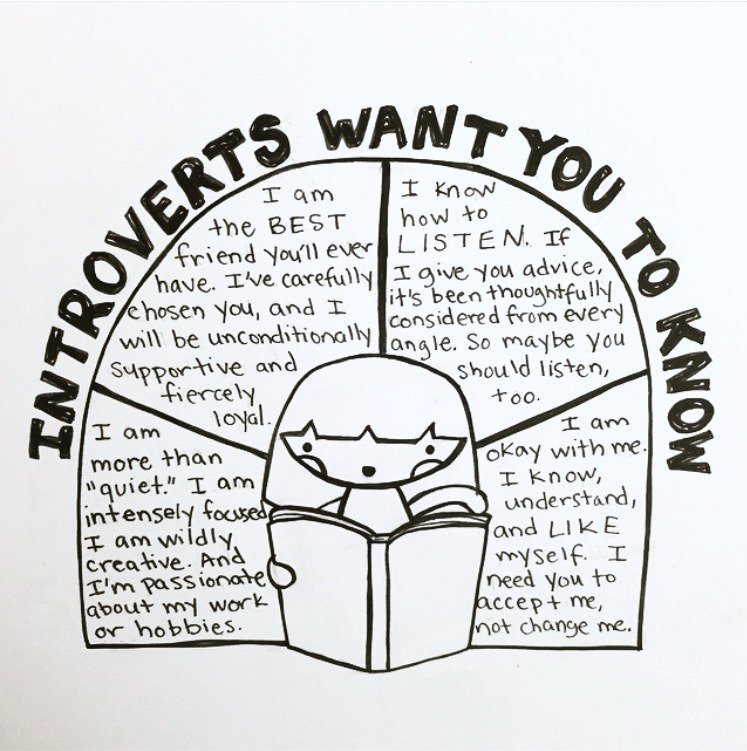 Texting or emailing is a much safer bet.
Texting or emailing is a much safer bet.
The thing is, when we’re home, it’s our safe space — we can lock our doors, hole up in our introvert sanctuary, and tune out the rest of the world.
We’ll come out from hiding eventually, but you’ll be a lot closer to friendship if you don’t ask us to an impromptu lunch or outing. Usually, we’ll be more than happy to go once the idea has sunk in, can be scheduled on our terms, and we have time to prepare for it: Will it be introvert-friendly? Who will be there? What’s my escape plan? And so forth…
2. Extroverts, feel free to take an introvert under your wing.
Is there a more awkward moment than a pregnant pause during small talk with someone you’ve just met? No, no, there is not. It’s grisly. It’s gruesome. Fight, flight, or a full-on panic attack kicks in.
In order to comfortably navigate the people-y space we’re in, we’d love a brave, confident, preferably well-humored extrovert to blaze the way for us, and swing the proverbial machete through the people-filled jungle. We thrive in the ever-widening wake of the machete — especially if a topic comes up that we’re passionate about.
We thrive in the ever-widening wake of the machete — especially if a topic comes up that we’re passionate about.
An extrovert taking us under their wing works well for us introverts because you have effectively put to rest all the perceived barriers to perform in public. You have expressed interest in us as fellow human beings, without making us prove our “worth” to you. And you have displayed your ability to add conversational grace to an interaction, and by doing so, relieved our anxiety about having to fill in silences where we might feel obligated to disclose more personal details about ourselves. (To absolute strangers? And in a big group of people? No thank you!)
Extroverts, you are also happy to make decisions, taking the pressure off of me to think of a decision that appeases everyone. (And this would also draw unwanted attention toward me, so…)
Join the introvert revolution. Subscribe to our newsletter and you’ll get one email, every Friday, of our best articles. Subscribe here.
Subscribe here.
3. Don’t try to have an in-depth conversation with them away.
You probably know that introverts hate small talk — we’d much rather have an in-depth conversation with you (preferably one-on-one). But that doesn’t mean we’ll open up immediately, especially if there are several people in the circle we’re all standing in. Or maybe the topic’s something we’re not familiar with or interested in. So if we were already quiet, this will cause us to be even more quiet.
If your future introvert buddy is a solid clamshell that you can’t crack, but your interest has been piqued and you know they’re worth it (we are!) – maybe we briefly bonded over a book we both just read — glob onto a mutual friend of ours. If you can’t crack a clam, it’s probably because you met them in a big group setting like the above, and you’ve just gotta put in a little more quality time.
Snag a buddy of ours and get our contact info (Instagram or LinkedIn work well). Time and space are the real keys here — and it gives us time to appropriately craft a heartfelt and sincere response that might otherwise have left our mouths as pure gibberish (if we’re lucky to squeak anything out at all).
Or, try to talk to us in a less-pressure setting, like in line for the restroom or at the bar. That way, any small talk can lead to “deep” talk way more organically.
And finally…
4. Give them time to decompress and recover.
I can’t stress this one enough. The best way to stay on good terms with an introvert is to give us time to decompress and recover from social situations. We may have an “introvert hangover” and really need time to recoup (trust me!).
And if you’re tempted to ask us to hang out again soon — don’t! Even if it seemed like we had a great time — and we probably did — let me explain…
The big marker of an introvert is not that we hate people — it’s that spending time with people (whether we love them or not) is draining. On a very basic level, interacting and communicating with people, especially in person, can be exhausting, and simply takes energy. We need to quietly recharge and replenish that energy in order to see you again.
We’re not broken, and certainly don’t need to be fixed. What we do need is just a small dose of understanding that being around people sucks up our energy, and our time alone gives us energy.
You clearly already know that introverts are the best kind of friends to have, so hang in there! Keep us in your thoughts, maybe invite us to things via email, but for goodness sake, please stop calling. (I say that with love, of course!)
You might like:
- Why an Introvert May Be the Best Friend You Will Ever Have
- 13 ‘Rules’ for Being Friends With an Introvert
- The Introvert’s Complete Guide to Making Friends Who ‘Get’ You
How to make friends with an introvert - features of communication
It often happens that a person with whom you especially want to communicate suddenly finds himself fenced off from the world by an invisible barrier. He can treat the person with whom he communicates very kindly, but in this communication, one way or another, a chill will be felt.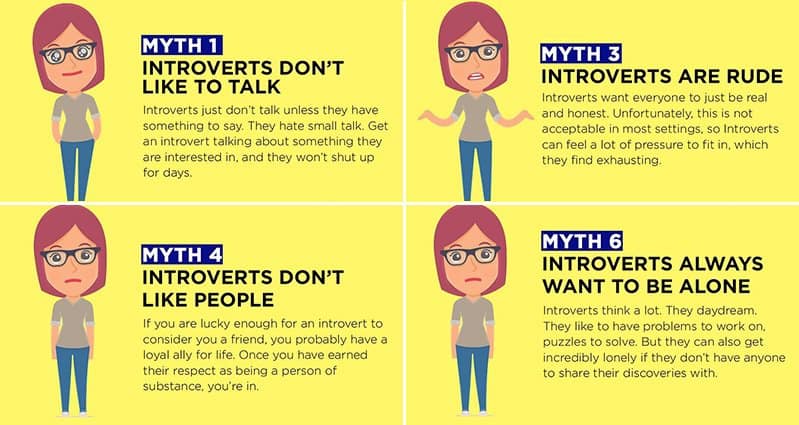 If so, then the person described above is an introvert. How to communicate with an introvert? More on this later.
If so, then the person described above is an introvert. How to communicate with an introvert? More on this later.
Carl Jung system: introverts and extroverts
Carl Jung created a system in which he clearly divided people into extroverts and introverts. His reasoning is very vague and full of metaphors and paraphrases. But from these reflections, nevertheless, one can deduce the characteristic features of both types.
According to Jung, an extrovert is a person oriented to the outside world. He strives for communication and never gets tired of it. Such a person likes to participate in various social events, energized by other people.
An introvert is the exact opposite of an extrovert. He is distinguished by a calm disposition, lives in his own world and, being a donor of energy, quickly gets tired of communication, becomes exhausted. That is why he prefers a narrow circle of people close to him.
How to communicate with an introvert?
You can believe in Jung's system, you can not believe it - it's a fact: people can be divided into two categories: sociable and not sociable, to put it simply.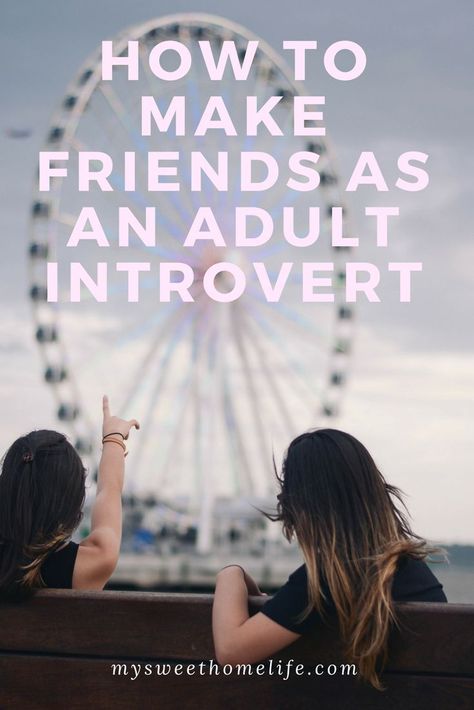 Uncommunicative, but not withdrawn. How to communicate with introverts? There are several basic rules:
Uncommunicative, but not withdrawn. How to communicate with introverts? There are several basic rules:
1. "Forewarned is forearmed" . You can not come to an introvert unexpectedly. It is important for him to prepare for the meeting, to prepare his heart. This is discussed by the fox from the work of Antoine de Saint-Exupery "The Little Prince". He says that if he comes at the same time, he will know what hour to prepare his heart for. The warning for the introvert will be the waiting period, the preparation of the heart that the wise fox spoke of.
2. “Take your time” . It is important to remember that an introvert cannot answer any questions and phrases instantly. Can't react instantly to situations. He needs a period of awareness, and therefore it is important to give him this time so that the interlocutor prone to introversion is comfortable. In particular, if you decide to give an introvert a gift, you do not need to look into his eyes immediately after opening the box. It is unlikely that you will be able to get anything other than a modest but sincere “thank you”, but then the person will certainly formulate his review at the next meeting. These are the features of an introvert, and if he is silent, it does not mean at all that he does not want to talk. He's just trying to formulate an answer.
It is unlikely that you will be able to get anything other than a modest but sincere “thank you”, but then the person will certainly formulate his review at the next meeting. These are the features of an introvert, and if he is silent, it does not mean at all that he does not want to talk. He's just trying to formulate an answer.
3. Monologue . It is also important to know that introverts rarely talk a lot, but if an introvert has already managed to deploy a monologue, it is important not to interrupt it, not accidentally interrupt it, because introverts react to this very sharply. If you interrupt a person prone to introversion, he is unlikely to return to the conversation he started, trying not to injure himself even more by the inattention of the interlocutor.
4. "Think what you say" . When communicating with an introvert, it is important to think carefully about everything that will be said, because. introverts, as mentioned above, are very sensitive, but at the same time reserved.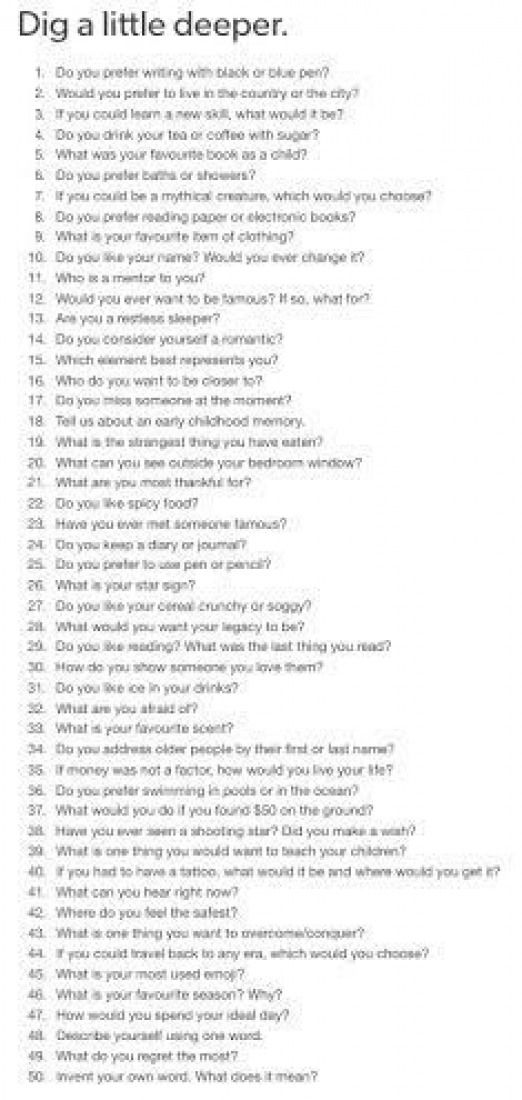 And therefore, he may not show his discontent and indignation, although destructive processes will take place inside him.
And therefore, he may not show his discontent and indignation, although destructive processes will take place inside him.
5. First step . An introvert is not always ready to take the first step, and therefore may seem like a great pride. In fact, this is not true at all. He's just too afraid of being rejected, of being unwanted. Sometimes it seems to him that his action will be inappropriate, and he prefers to hold it back so as not to get into a mess. Therefore, the first step should be taken by someone who wants to make friends with an introvert.
6. "Interest" . Introverts are not talkative. Sometimes it seems that they do not need communication, and they do not want to talk about themselves. In fact, they really want to be asked about business, so that the interlocutor is interested in what they will talk about. That is why it is important to ask a person questions that will spin the conversation. You can start with a simple question, “How was your day?”, And only then, clinging to what was told, you can build a dialogue with an introvert. If he says that he was at a concert, you can ask the interlocutor about what he especially remembers. Be sure he will want to share his impressions, but you should be prepared for the fact that the answer will be short.
If he says that he was at a concert, you can ask the interlocutor about what he especially remembers. Be sure he will want to share his impressions, but you should be prepared for the fact that the answer will be short.
7. “Don't get into your soul!” . If the introvert's answers are short, it means that he is simply not ready for communication, he is going through special thought processes, and therefore it is important to stop in time so as not to cross the border set by a person prone to introversion.
These rules will help you get close to an introvert, tame him. This should be done gradually, it is the smoothness of rapprochement that will become the key to sincere friendship between an introvert and an extrovert. And if someone manages to open the shell of an introvert without damaging it, then he will certainly discover the extraordinary world of a person with whom he so wanted to make friends.
Devora Zach - Networking for introverts
After analyzing traditional networking techniques, the author of the book came to the conclusion that they are written for extroverts. But what about the rest of the people - those who hate noisy parties, self-promotion and boasting, and prefer most of the...
But what about the rest of the people - those who hate noisy parties, self-promotion and boasting, and prefer most of the...
The way to the heart of an introverted man
likes to be alone, taciturn. And also a conservative, pays a lot of attention to his own person, strictly "protects" his personal space and not really ...
Susan Cain - Introverts. How to use your personality traits
This book is about how to realize your talents and ambitions as an introvert, how to influence people, lead and direct them, while maintaining your personal space. There are always alternative recipes for success,...
Marty Olsen Laney - Invincible introvert
Do you hide in your shell when too many things are happening at the same time? Do you only get energized when you're alone? Can't you pull words out of you with ticks at crowded gatherings? Do you notice...
Introversion and extraversion, or what are "insiders" and "outsiders"
The psyche of each person is individual. What is normal for some people may be misunderstood by others. This can relate to any type of activity, way of spending leisure time, attitude to society, hierarchy ...
What is normal for some people may be misunderstood by others. This can relate to any type of activity, way of spending leisure time, attitude to society, hierarchy ...
Friendship with an introvert: 8 simple rules
15 872
Among them are many creative personalities and intellectuals. They are considered mysterious and unpredictable. They are so taciturn that others know almost nothing about them. Those who are trying to understand what is going on in such a person's head, what he loves or hates, have a hard time.
Want to learn how to please an introvert? By following simple rules, you will begin to notice that a radiant smile appears on his face more often.
1. They lead a simple life
An introvert is unpretentious, he is so comfortable. Excess is contrary to his character. If you want to invite an uncommunicative friend somewhere, remember that everything should be simple, otherwise he will not go anywhere at all.
2. They are individualists
Perhaps this is their main feature. They are not interested in the opinion of the crowd, they prefer to be different from everyone. Thanks to their high IQ, they are able to create a unique lifestyle. Their qualities are manifested when there is an opportunity to devote time to new ideas and unleash creativity. If you want the introvert to get the most out of communication, offer to do something original.
3. They value peace
After a long day of work amid the hustle and bustle, they need to take refuge in a quiet place. It is important to be alone with yourself, the only way to recover and restore strength. If you can understand that, leave them alone, they will be grateful.
4. They strive for high goals
A person who spends a lot of time alone tends to indulge in thoughts. The habit of thinking about everything in the world develops self-awareness and the desire to know the highest meaning and purpose. Introverts are well aware that they need to earn a living and go to work, but they can change 5-9places if they do not find intellectual and emotional satisfaction. Do not blame them for the fact that they often change their profession, they are so arranged.
Introverts are well aware that they need to earn a living and go to work, but they can change 5-9places if they do not find intellectual and emotional satisfaction. Do not blame them for the fact that they often change their profession, they are so arranged.
5. They prefer meaningful conversations
Introverts think much more complex and original than extroverts. Therefore, they often plunge into deep reflection and think about important topics for a long time. If you ask simple questions like "How are you?" or “How are you?” is likely to be a one-word response. Try to ask more meaningful questions, you will find an interesting discussion.
6. They need understanding
These people adore receptive people who are slow to judge their habits. They know very well that it is not easy with them. Anyone who can understand that a closed friend values \u200b\u200bpersonal space above all else can be considered his best friend. It's a pain for an introvert to explain why they don't like the idea of going out this weekend.